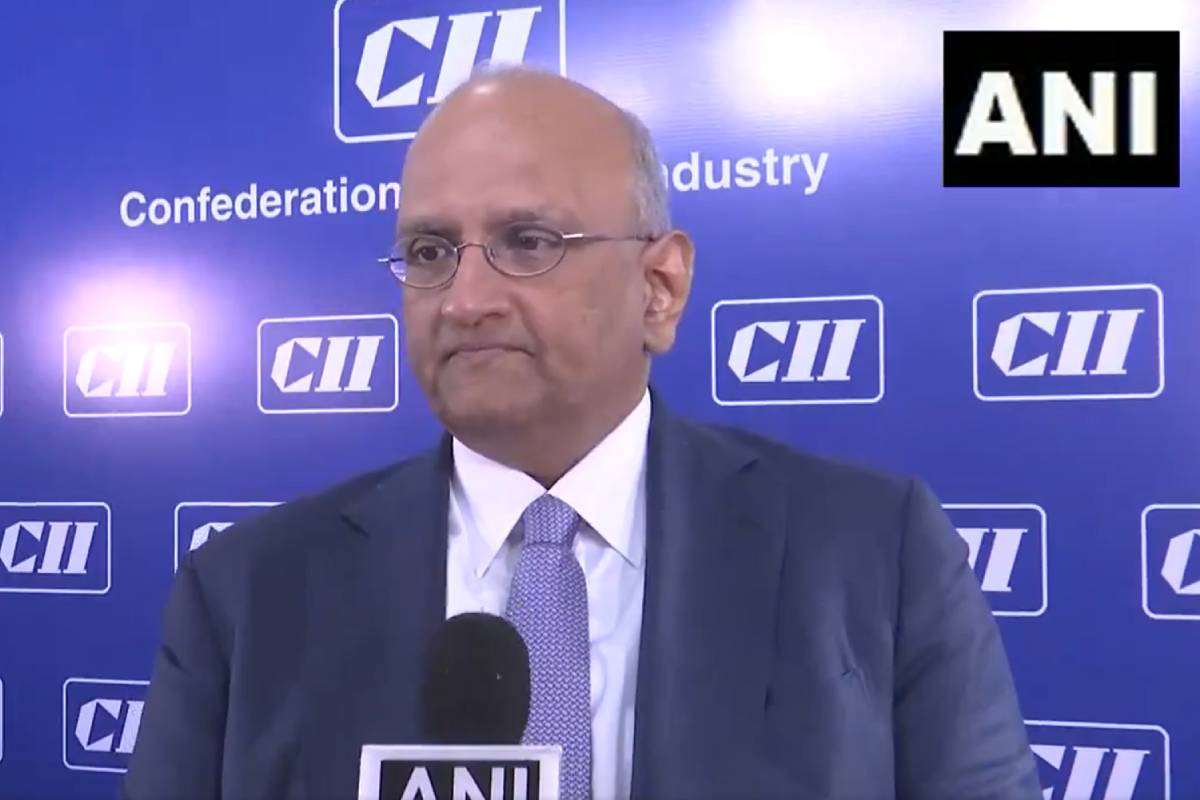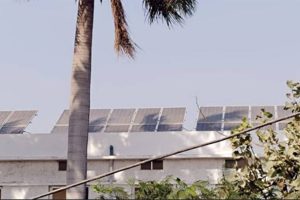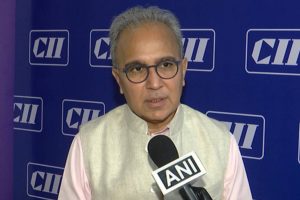Ahead of the presentation of the Union Interim Budget, Ramachandran Dinesh, President, Confederation of Indian Industry said that the government should focus on capital expenditure, which has happened very well in the past.
“We are asking for continuity. We are asking for the focus on CapEx and the infrastructure, which has happened very well in the past, to continue. We are recommending a 20% increase in CapEx spending, with Rs 12 lakh crore to be spent on infrastructure. We are also looking at giving direction in terms of how equitable growth will be maintained in future and what the focus of the government will be,” said Dines, who is also the Chairman of TVS Supply Chain Solutions Ltd.
Rahul Garg, Chairman, National Council on Direct Taxes, ASSOCHAM and Partner, Price Waterhouse & Co. LLP, also emphasised financial prudential measures to maintain macroeconomic stability in the Indian economy.
“The industry expectation is that our financial prudence in running the economy–how has that performed – it should come out very clearly. So, I think this being an interim budget, everybody is eyeing whether we will be able to contain our fiscal deficit. It seems that by payment of taxes and the collection of taxes by people and businesses, we have had a reasonably good collection of taxes. The overall government expenditure, both on infrastructure and on welfare schemes, was in a range that is within the overall collection of taxes. Therefore, it is very likely that the industry expectations, the economists’ expectations, and the whole world’s expectation of prudence in India’s financial management would be very apparent. So, most likely we would get an announcement that we were able to contain our fiscal deficit at 5.9 per cent. This also gives confidence that we can consolidate it further and next year perhaps we could look even lower…,” Garg said.
Earlier, Ajit Mangrulkar, Director General of the IMC Chamber of Commerce and Industry, highlighted the need for constant infrastructure investment for robust economic growth and stability.
“I think infrastructure has to be the key focus. India has been lagging in infrastructure and in the last couple of years we have seen that this government has put in a lot. We have seen a lot of projects that have come to fruition this year itself and any more that are in the pipeline will be implemented. So, I think, that is going to be a constant–infrastructure investment. Because infrastructure creates so many other opportunities, it creates investment and employment. It develops the area around the infrastructure development. So, I think that’s an area we are going to see and it’s for the betterment of the country and its holistic growth,” said Ajit Mangrulkar, Director General of the IMC Chamber of Commerce and Industry.
The interim budget will take care of the financial needs of the intervening period until a government is formed after the Lok Sabha polls. The full Union Budget will be presented once the new government is elected following General Elections 2024.
Samir Somaiya, President of IMC Chamber of Commerce and Industry said, “This is an Interim Budget, so there will be some limitations. But I think they will underscore their priorities. I also think that when you look at the demographic dividend that the country has – we have such a large young population, you need to also skill them if you need them to be ready for the kind of infrastructure, defence, space, agriculture, precision farming and the whole startup infrastructure that they also need to create. So, I think they will continue to build this ecosystem to build a virtuous cycle so that India continues to grow at 6.5% and more.”
Meanwhile, the Executive Director, IMF and former Chief Economic Advisor, K Subramaniam said that the government will take forward what it has done in the last few years.
“For the expenditure till then, there are not many steps involved, just like I remember that in 2019, when I was in government, PM Kisan and the standard deduction were increased because the economy was in very good condition. The growth rate of 7.3 per cent is likely to continue, so according to me, the government will take forward what it has done in the last few years and there may be some steps forward,” added the former economic advisor.
The Union Finance Minister will table the interim budget as the Lok Sabha polls are due to be held this year. This will be her sixth budget as the Finance Minister and last in the second term of the Modi government.
The Indian economy is projected to grow close to 7 per cent in the financial year 2024-25 which starts this April, said the Ministry of Finance in a review report.
India’s economy grew 7.2 per cent in 2022-23 and 8.7 per cent in 2021-22. The Indian economy is expected to grow 7.3 per cent in the current financial year 2023-24, remaining the fastest-growing major economy.
The last full budget of the second term of Modi government had proposed to increase capital expenditure outlay by 33 per cent to Rs 10 lakh crore in 2023-24, which would be 3.3 percent of the GDP. It was almost three times the outlay in 2019-20.





